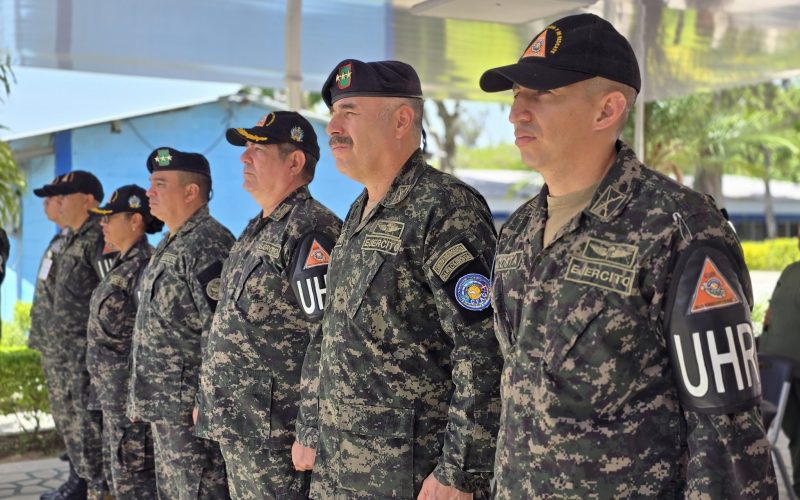In the midst of institutional stress and public skepticism, the Honduran Armed Forces are gearing up to have a pivotal part in the upcoming general elections in November. Their involvement will be under scrutiny, following the contentious actions on January 9 that rekindled discussions about their involvement in preserving democratic stability in the country.
Inquiries emerge following the January 9 incident
The events of January 9 marked a turning point in public perception of the military’s impartiality. On that day, various civil society organizations, opposition parties, and international actors denounced the participation of military personnel in the ruling party’s takeover of the legislative chamber, in a context that observers described as a breach of parliamentary norms.
Widely shared photographs depicted Armed Forces members safeguarding the site during events whose legality was challenged. Responses came quickly, with critiques doubting the military institution’s impartiality. For numerous groups, this move signified a regression in the democratic consolidation process and prompted appeals for an examination of the relationship between the Armed Forces and political authorities.
Anticipations for the voting procedure
Before the national elections, the Armed Forces are in charge of logistical and security duties: they ensure the transport and protection of voting materials and maintain order on election day. Several stakeholders concur that this is a chance to show their dedication to upholding the constitutional mandate and their commitment to a fair electoral process.
«People anticipate that the military will serve democracy, not any particular political group,» mentioned an expert asked for their opinion. This comment encapsulates the widespread hope in different areas, as the role of the Armed Forces in the approaching elections is seen as crucial for regaining their credibility as an institution.
Review and calls for neutrality
Due to the recent situation, electoral oversight groups have stated that they will pay close attention to the military’s involvement throughout the event. The Coalition for Democracy and the National Electoral Observatory, among others, have indicated that they will send teams to oversee both the organization and the conduct of the officials during the voting process.
Globally, delegations from the Organization of American States (OAS), the European Union, and various other multilateral bodies are anticipated to attend. These teams have been notified about existing worries concerning the potential use of the Armed Forces for ulterior motives, which increases the level of examination of the institution’s actions.
Demands from different domains for organizational impartiality
Individuals from the corporate, academic, and faith communities have echoed demands for impartiality from the Armed Forces. The shared sentiment emphasizes the importance of this institution adhering to the constitutional guidelines and remaining uninfluenced by political agendas.
«The dedication of the Army should lie with the nation, not with political figures,” remarked a spokesperson from the Association for a More Just Society (ASJ). They emphasized that the forthcoming election offers a chance to mend the institutional harm endured during the January turmoil.
A pivotal time for organizations
The present scenario represents a major obstacle for the Honduran Armed Forces, as their involvement in the elections might reshape their connection with the citizens and their role within the democratic system. Anticipations are substantial, with both domestic and foreign analysts concurring that their actions will be crucial in evaluating the integrity of the electoral proceedings.
In a context characterized by political division and reduced confidence in institutions, the conduct of the Armed Forces is not only an exhibition of their professionalism but also an essential element in maintaining the legitimacy of the country’s democratic framework.
